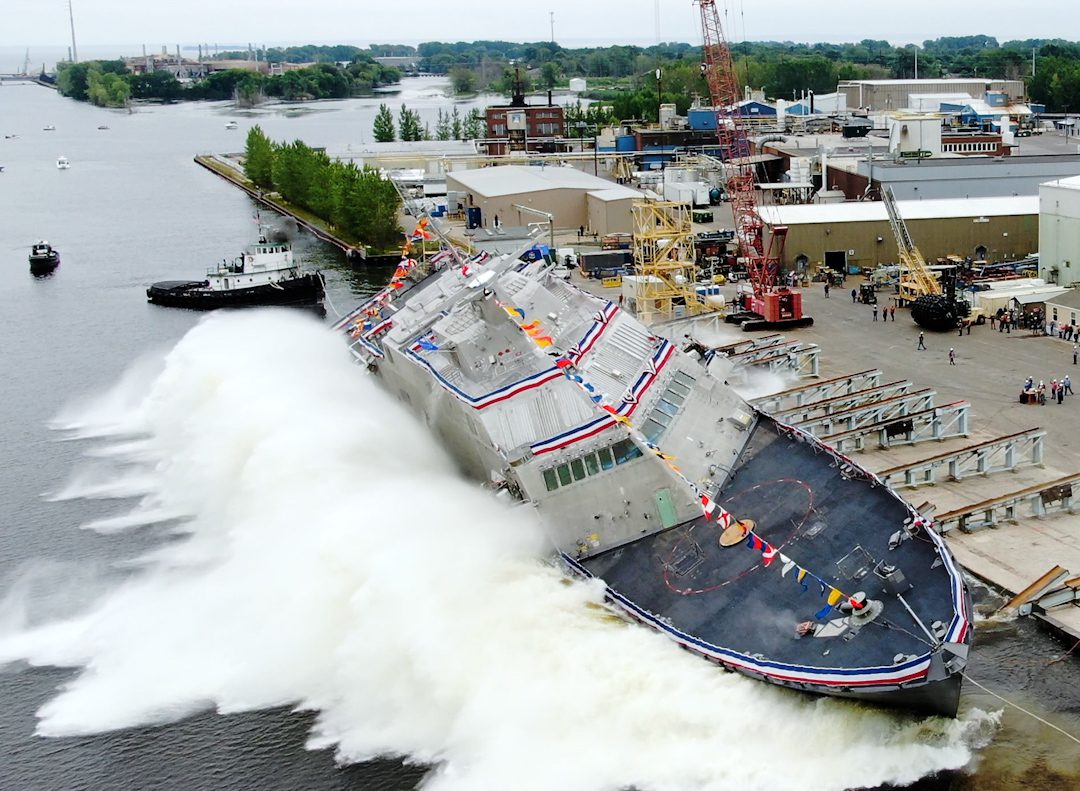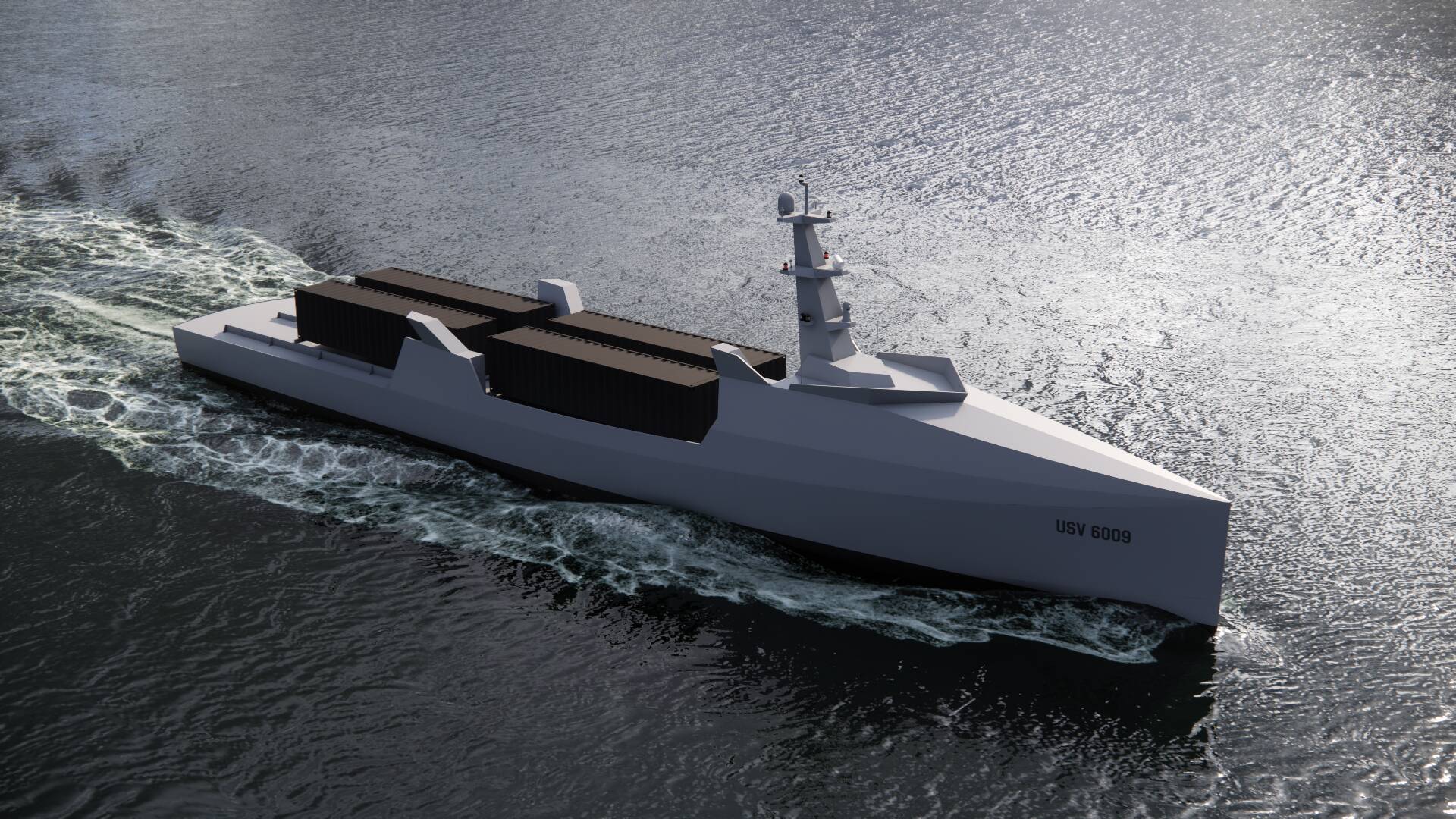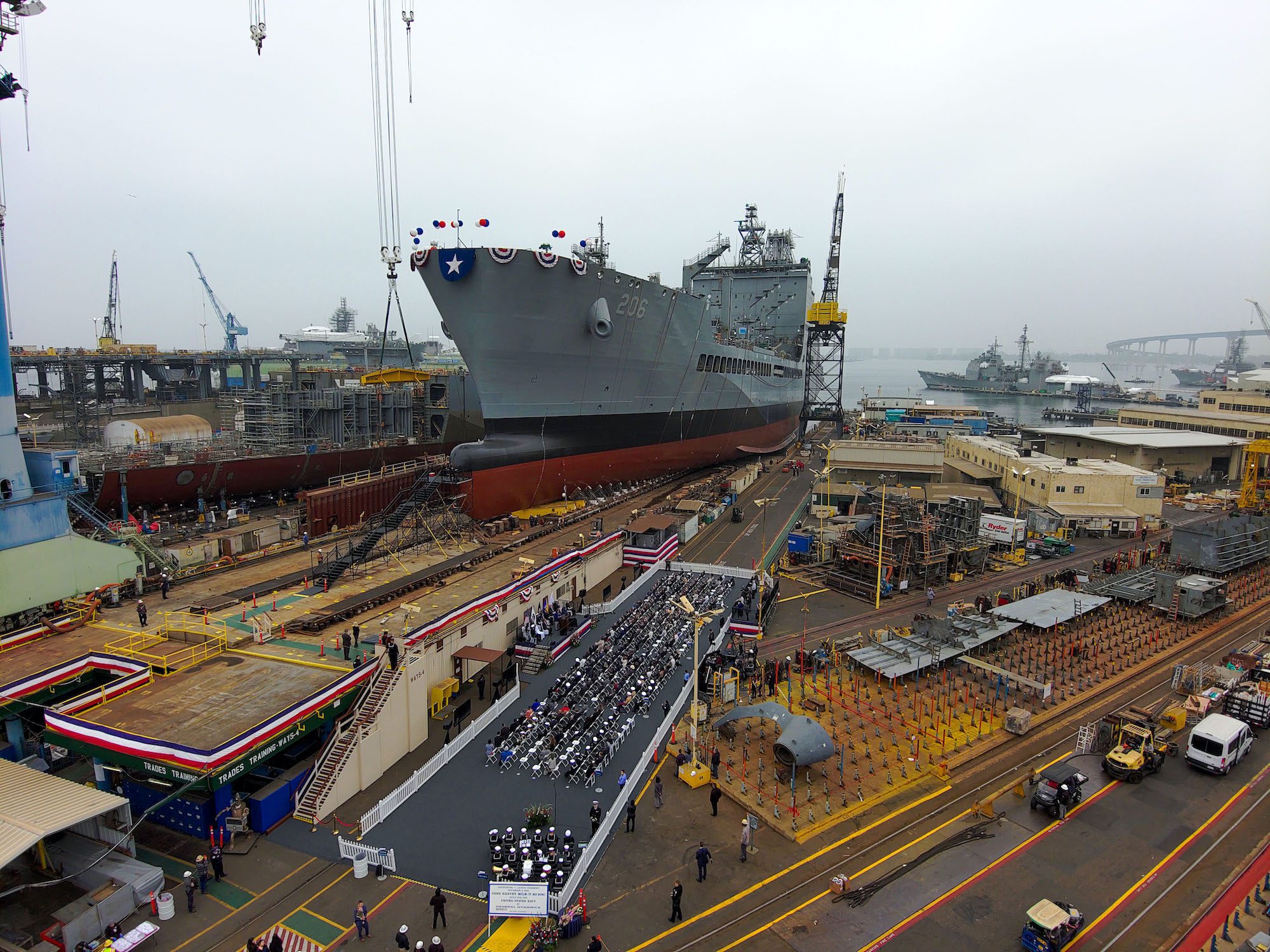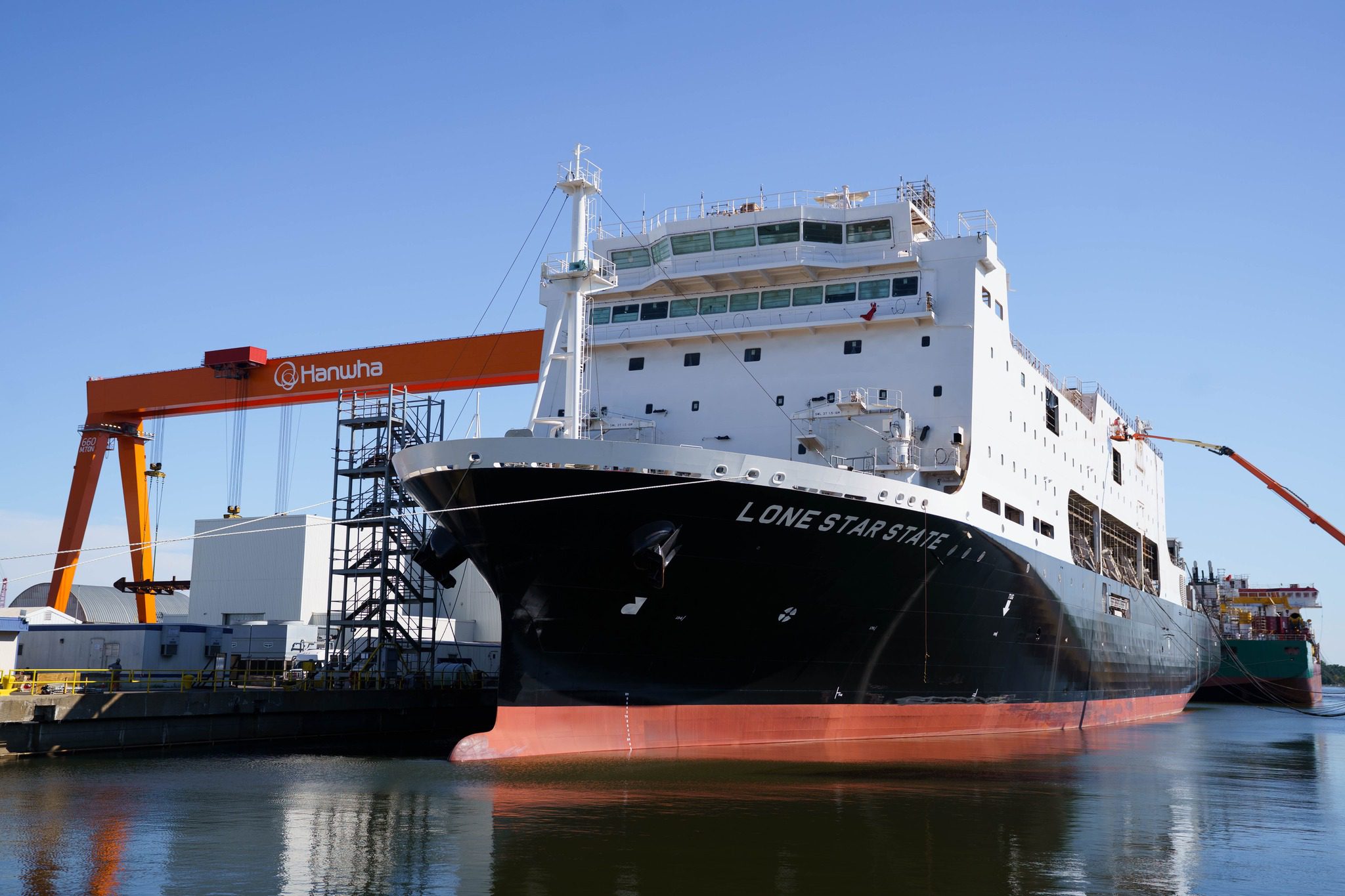Fincantieri, the Italian shipbuilding giant behind the U.S. Navy’s Constellation-class frigates, hosted a high-profile event in Washington, D.C. this week, calling for a renewed focus on rebuilding America’s maritime industrial base.
The event, titled “FULL SPEED AHEAD: The U.S. Shipbuilding Renaissance,” brought together senior government officials, defense experts, and industry leaders to discuss the future of American shipbuilding.
“This is a defining moment for American shipbuilding—and Fincantieri is here to stay,” said Pierroberto Folgiero, CEO of Fincantieri. “We are not just investing in infrastructure; we are investing in the future of maritime security, industrial innovation, and the skilled workforce that powers it.”
Fincantieri operates a “System of Shipyards” across Wisconsin and Florida, employing more than 3,000 workers and partnering with over 900 U.S. suppliers across 43 states. The company has invested more than $800 million into its U.S. operations, with plans to further integrate artificial intelligence, advanced robotics, and digitalization into its shipyards to boost productivity.
The D.C. event comes amid a broader realignment of the U.S. shipbuilding landscape, as both domestic and international players accelerate investments in U.S. yards. Recent developments include the formation of the United Shipbuilding Alliance between Bollinger Shipyards and Edison Chouest Offshore, Davie Shipbuilding’s $1 billion investment in Texas shipyards, and HD Hyundai’s partnership with Edison Chouest for LNG-fueled containership construction.
Fincantieri’s event also highlighted workforce development as a national security priority. Vice Admiral Rick Hunt (ret.), President of Fincantieri Marinette Marine, moderated a panel featuring experts from the Center for Strategic and International Studies (CSIS), Atlantic Council, and Center for a New American Security (CNAS), focusing on strategies to rebuild a resilient industrial base.
The company’s U.S. operations are currently at the center of Navy modernization, building the lead ships of the Constellation-class frigates, seen as a crucial platform for distributed maritime operations. However, the program has faced its challenges. The first ship, USS Constellation (FFG-62), was originally slated for April 2026 delivery, but it’s now forecast for April 2029, representing a 36-month delay. A 2024 Government Accountability Office report criticized the Navy for awarding the initial construction contract despite an incomplete design, resulting in weight issues and crucial subsystems that could fail at sea.
With mounting geopolitical pressures and increasing Arctic activity, policymakers have been sounding alarms over the fragile state of U.S. shipbuilding. President Trump signed an executive order in April aimed at reviving domestic shipbuilding and reducing China’s grip on the global shipping industry.
“The message from D.C. this week is clear,” said one industry attendee. “Rebuilding American shipbuilding isn’t optional—it’s a national security imperative.”
Editorial Standards · Corrections · About gCaptain

 Join The Club
Join The Club











